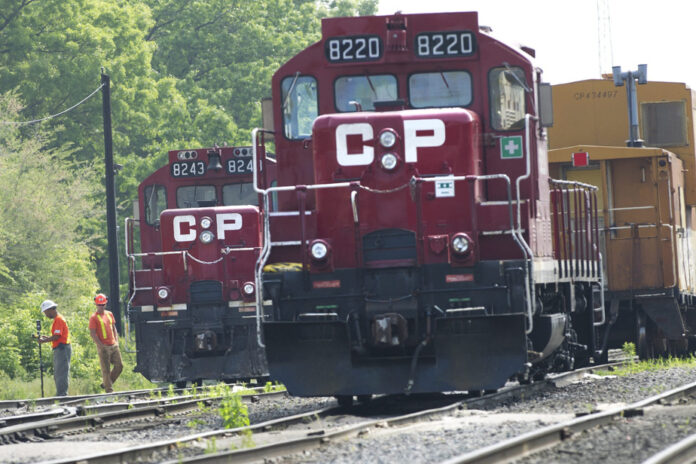(Calgary) Canadian Pacific Kansas City has revised its economic forecast downward due to weaker consumer demand and losses attributable to this summer’s strike at British Columbia ports.
“It’s definitely a challenging quarter as we’ve had to deal with a weaker demand environment,” CPKC CEO Keith Creel said in a conference call with analysts on Wednesday.
“It’s certainly not the outcome we anticipated, but it’s the prudent thing to do at this point. »
Creel cited “economic headwinds” and the 13-day work stoppage that forced the country’s largest port to close in July to explain the revised outlook. The company therefore only expects a stable or slightly increasing adjusted profit for the current financial year, compared to last year.
These forecasts are more gloomy than those presented three months ago, when the Calgary company predicted that its adjusted profit would grow by around 5% in 2023.
This comes as consumers continue to shift their spending towards services rather than products, in a reversal of pandemic trends, with the pressure of inflation and rising interest rates an added drag.
Meanwhile, the two-week strike has halted operations at most West Coast ports. In the first week alone, the number of containers transported by Canadian railways fell about half from its level for the same period in 2022, according to the American Railroad Association.
Creel also highlighted the hurdles surrounding Canadian Pacific’s merger with Kanas City Southern in April. The US$31 billion deal—the continent’s first major rail merger in more than two decades—created the only railway linking Canada to the United States and Mexico.
“We certainly haven’t been perfect,” Creel admitted, noting that onboarding the 20,000 employees had proven more difficult than expected.
For the quarter ended September 30, CPKC reported net income of $780 million, down 12% from the $891 million earned by Canadian Pacific and Kansas City Southern a year earlier — before their merger.
Despite the decline in profits, CPKC saw its revenue grow 44% to 3.34 billion in the third quarter, compared to 2.31 billion in the same period last year.
Earnings per share were 84 cents, up from 96 cents a year ago. Analysts, however, had expected an adjusted profit per share of more than 90 cents, according to forecasts compiled by financial data firm Refinitiv.















